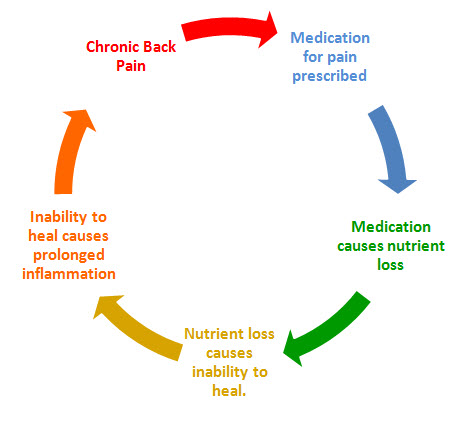Riboflavin is a water soluble B vitamin. It aids in the production of energy in all tissues in the body. It is important for the metabolism on carbohydrates, proteins, and fats. It acts as an antioxidant and is crucial for the maintenaince of the nervous system and the skin.
Signs & Symptoms of Vitamin B2 Deficiency:
Cheilosis (chapping of the lips)
Angular Stomatitis (cracking in the corners of the lips)
Photophobia (sensitivity to light)
Dry itchy eyes
Depression
Anxiety
Memory loss
Neuropathy
Fatigue
Vitamin B2 has been shown to be beneficial in the following conditions:
Intestinal disease
Depression
Diabetes
Chronic Fatigue Syndrome
Fibromyalgia
Drugs, medications, or additives that may deplete or interfere with Vitamin B2 metabolism:
Thyroid hormone: increase utilization of riboflavin
Antibiotics cause secretion with long term use
Antacids destroy B2
Tricyclic antidepressants
Phenothiazines (antipsychotics such as chlorpromazine)
Birth control pills
Methotrexate
Anticonvulsants: Phenytoin (Dilantin) in children
Probenecid (Benemid)
Thiazide diuretics (HCTZ, Maxzide, Dyazide, Microzide)
Furosemide diuretics
Alcohol
Possibly Caffeine (diuretic action)
Adriamycin (a chemotherapy drug)
Thyroid hormone: increase utilization of riboflavin
Antibiotics cause increased secretion with long term use
Antacids destroy B2
Tricyclic antidepressants
Phenothiazines (antipsychotics such as chlorpromazine)
Birth control pills
Methotrexate
Anticonvulsants: Phenytoin (Dilantin) in children
Probenecid (Benemid)
Thiazide diuretics (HCTZ, Maxzide, Dyazide, Microzide)
Furosemide diuretics
Alcohol
Possibly Caffeine (diuretic action)
Adriamycin (a chemotherapy drug)
Erythrocyte Glutathione Reductase Activity (EGRA)
Leukocyte functional assays (Spectracell labs)
Whole blood levels
Food Sources:
Meats including beef, chicken, and fish. Organ meats, legumes, and nuts
















